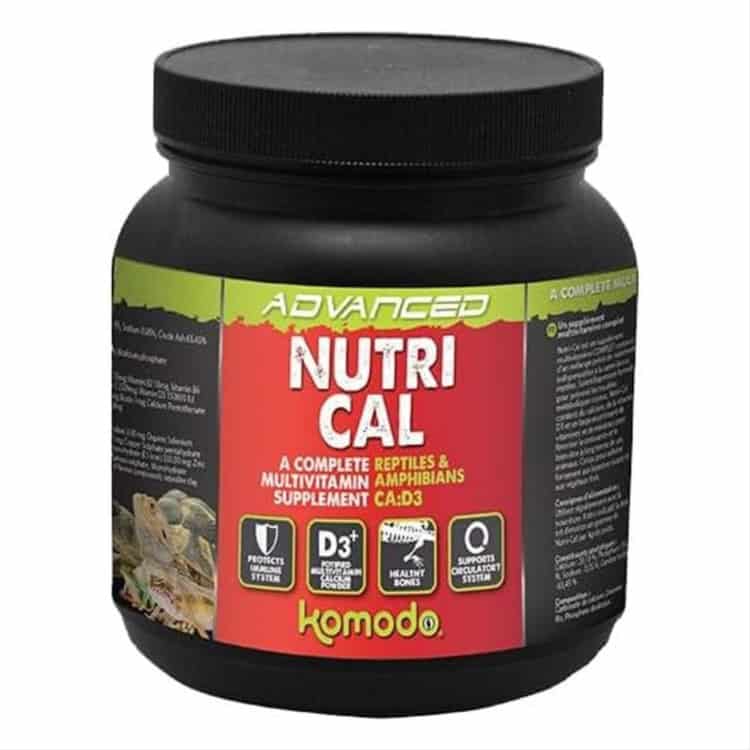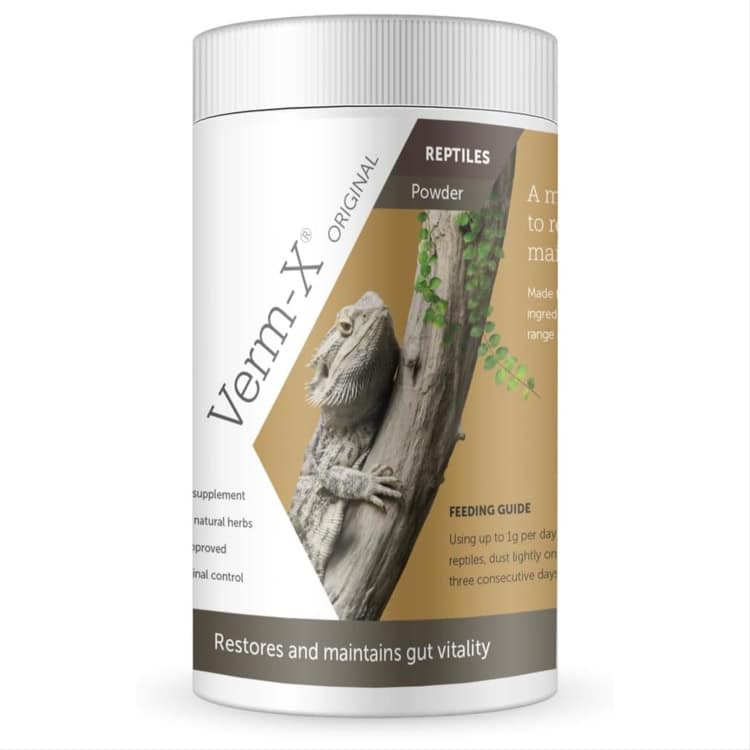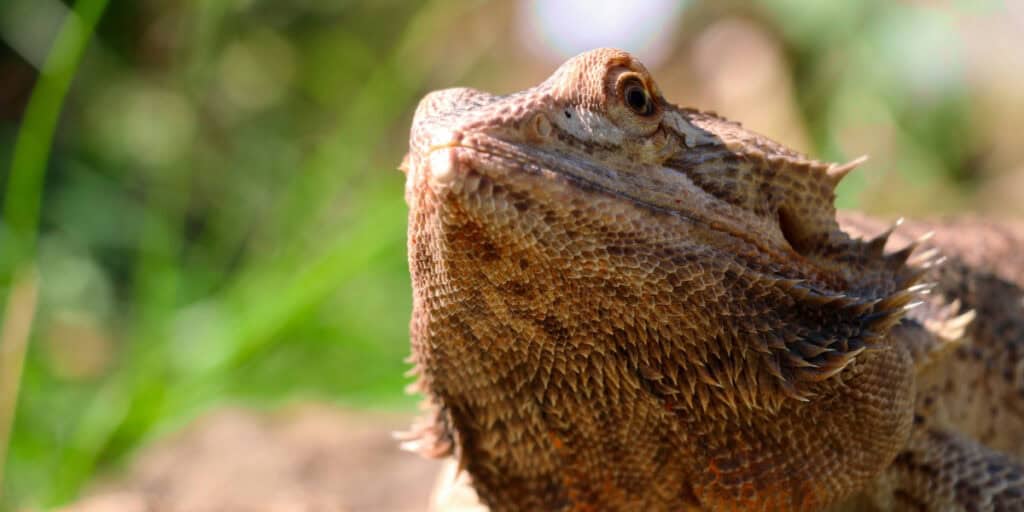Bearded dragons are omnivorous reptiles that require a diet consisting of both animal and plant matter. In their natural habitat, they consume various insects, including crickets, roaches, and mealworms, as well as leafy greens, vegetables, and fruits. When kept as pets, it is crucial to replicate this diverse diet to ensure they receive all necessary nutrients for optimal health.
A balanced diet for bearded dragons should include protein, carbohydrates, fats, vitamins, and minerals to support their growth, development, and overall well-being. Inadequate nutrition can lead to health issues such as metabolic bone disease, obesity, and vitamin deficiencies. Therefore, it is essential for bearded dragon owners to understand their pets’ nutritional requirements and provide a well-rounded diet.
Protein is particularly important for bearded dragons to support growth and muscle development. In the wild, insects are their primary source of protein and essential amino acids. However, they also require vitamins and minerals found in plant matter.
Leafy greens like collard greens, mustard greens, and dandelion greens are excellent sources of calcium, vitamin A, and other essential nutrients. Vegetables such as squash, bell peppers, and carrots provide carbohydrates and fiber to support digestion and overall health. Fruits can be offered as occasional treats but should not constitute a significant portion of their diet due to their high sugar content.
By providing a balanced diet that includes a variety of insects, leafy greens, vegetables, and occasional fruits, owners can help ensure their bearded dragons remain healthy and thrive in captivity.
Key Takeaways
- Bearded dragons require a balanced diet of insects, vegetables, and fruits to meet their nutritional needs.
- Calcium and vitamin D3 are essential for bearded dragons to maintain strong bones and prevent metabolic bone disease.
- Multivitamins play a crucial role in supporting overall health and boosting the immune system of bearded dragons.
- Omega-3 fatty acids are important for promoting healthy skin and a shiny coat in bearded dragons.
- Gut-loading and dusting insects with calcium and vitamin supplements can provide optimal nutrition for bearded dragons.
Calcium and vitamin D3: crucial supplements for bone health
The Role of Calcium in Bone Health
Calcium is essential for the formation and maintenance of strong bones and teeth, as well as for muscle function and nerve transmission in bearded dragons. Without an adequate supply of calcium, bearded dragons can develop metabolic bone disease, a serious condition characterised by weakened bones, deformities, and fractures.
Vitamin D3: The Key to Calcium Absorption
Vitamin D3 is also essential for calcium absorption and utilisation. In the wild, bearded dragons obtain vitamin D3 through exposure to natural sunlight, which triggers the synthesis of this important vitamin in their skin. However, captive bearded dragons may not have access to sufficient sunlight, especially if they are housed indoors or live in areas with limited natural light.
Supplementing Calcium and Vitamin D3 for Optimal Health
As a result, it’s important for owners to provide supplemental vitamin D3 to ensure their pets can effectively utilise the calcium in their diet. Supplementing with calcium and vitamin D3 is particularly important for growing bearded dragons, as they require additional nutrients to support their rapid growth and development. However, adult bearded dragons also benefit from these supplements to maintain strong bones and prevent the onset of metabolic bone disease.
Forms of Calcium and Vitamin D3 Supplements
There are various forms of calcium supplements available for reptiles, including calcium carbonate powder and calcium citrate powder. These supplements can be dusted onto insects or mixed into their food to ensure they receive an adequate supply of calcium. Additionally, vitamin D3 supplements can be provided in the form of liquid drops or powdered supplements. By incorporating these crucial supplements into their pets’ diet, owners can help support the bone health and overall well-being of their bearded dragons.
The importance of multivitamins for overall health and immune support

In addition to calcium and vitamin D3, multivitamins play a crucial role in supporting the overall health and immune function of bearded dragons. Multivitamins contain a blend of essential vitamins and minerals that are necessary for various physiological functions, including metabolism, growth, reproduction, and immune response. While a well-rounded diet that includes a variety of insects and plant matter can provide many of these nutrients, it can be challenging to ensure that bearded dragons receive all the necessary vitamins and minerals through diet alone.
Therefore, supplementing with a high-quality multivitamin is essential to fill any nutritional gaps and support optimal health. Multivitamins for reptiles typically contain vitamins A, B complex, C, D3, and E, as well as essential minerals such as zinc, copper, and selenium. These nutrients play key roles in maintaining healthy skin and eyesight, supporting immune function, promoting growth and development, and aiding in the metabolism of carbohydrates, fats, and proteins.
By providing a multivitamin supplement on a regular basis, bearded dragon owners can help ensure their pets receive all the essential nutrients they need to thrive. However, it’s important to follow the recommended dosage guidelines provided by the manufacturer to avoid over-supplementation, which can lead to toxicity and other health issues. With proper supplementation and a balanced diet, bearded dragons can maintain strong immune function and overall well-being.
Omega-3 fatty acids: promoting healthy skin and a shiny coat
Omega-3 fatty acids are another important component of a bearded dragon’s diet that can promote healthy skin and a shiny coat. These essential fatty acids play a crucial role in maintaining the integrity of cell membranes, supporting immune function, reducing inflammation, and promoting healthy skin and coat. While bearded dragons naturally obtain omega-3 fatty acids from certain insects and plant matter in the wild, it’s beneficial for owners to provide additional sources of these essential nutrients to support their pets’ overall health.
Flaxseed oil and fish oil are two common sources of omega-3 fatty acids that can be added to a bearded dragon’s diet. These oils can be mixed into their food or applied directly onto insects before feeding. By incorporating omega-3 fatty acids into their pets’ diet on a regular basis, owners can help support healthy skin and coat condition while also promoting overall well-being.
Additionally, omega-3 fatty acids have been shown to have anti-inflammatory properties that may benefit bearded dragons with certain health conditions or injuries. However, it’s important to consult with a reptile veterinarian before adding any new supplements to a bearded dragon’s diet to ensure they are safe and appropriate for their individual needs.
Gut-loading and dusting insects for optimal nutrition
Insects are a primary source of protein for bearded dragons and should make up a significant portion of their diet. However, not all insects are created equal when it comes to nutritional value. Gut-loading is the practice of feeding insects a nutritious diet before offering them to bearded dragons to enhance their nutritional content.
This ensures that the insects are packed with essential vitamins and minerals that will benefit the bearded dragon when consumed. Common gut-loading foods for insects include dark leafy greens, carrots, squash, and commercial gut-loading diets specifically formulated for feeder insects. In addition to gut-loading insects, dusting them with calcium powder before feeding them to bearded dragons is essential for ensuring they receive an adequate supply of this crucial mineral.
Calcium powder can adhere to the exoskeleton of insects when shaken in a plastic bag or container with the insects before offering them to the bearded dragon. This practice helps prevent calcium deficiencies in captive bearded dragons and supports their bone health. By gut-loading and dusting insects before feeding them to their pets, owners can ensure that bearded dragons receive optimal nutrition from their primary source of protein.
Herbal supplements for digestive health and parasite prevention

Natural Anti-Parasitic Properties
Certain herbs possess natural anti-parasitic properties that can help prevent internal parasites from establishing themselves in the digestive tract of these reptiles. Additionally, some herbs have digestive-stimulating properties that can aid in maintaining healthy gut function and preventing constipation or other digestive issues.
Common Herbal Supplements
Common herbs used as supplements for bearded dragons include fenugreek, dandelion root, slippery elm bark, and pumpkin seeds. These herbs can be offered in various forms such as dried powders or teas that are added to the bearded dragon’s food or water.
Important Considerations
However, it’s essential for owners to consult with a reptile veterinarian before introducing any herbal supplements to their pets’ diet to ensure they are safe and appropriate for their individual needs. Additionally, it’s crucial to source high-quality herbs from reputable suppliers to avoid potential contamination or toxicity issues.
Consulting with a reptile veterinarian for personalised supplement recommendations
While general supplement guidelines can provide a good starting point for meeting the nutritional needs of bearded dragons, it’s important for owners to consult with a reptile veterinarian for personalised supplement recommendations based on their pets’ individual needs. A veterinarian with experience in reptile care can assess the specific dietary requirements of each bearded dragon based on factors such as age, size, health status, and environmental conditions. A reptile veterinarian can also provide guidance on proper supplement dosages and administration methods to ensure that bearded dragons receive the necessary nutrients without risking over-supplementation or other health issues.
Additionally, veterinarians can offer valuable advice on sourcing high-quality supplements from reputable manufacturers to ensure their safety and efficacy. By working closely with a reptile veterinarian, owners can develop a tailored supplementation plan that meets the unique nutritional needs of their bearded dragons while promoting optimal health and well-being. Regular check-ups with a veterinarian can also help monitor the effectiveness of the supplementation plan and make any necessary adjustments based on changes in the pet’s health or dietary requirements.
In conclusion, understanding the nutritional needs of bearded dragons is essential for providing them with a well-rounded diet that supports their growth, development, and overall well-being. Calcium and vitamin D3 are crucial supplements for bone health in these reptiles, while multivitamins play an important role in supporting their overall health and immune function. Omega-3 fatty acids can promote healthy skin and coat condition when incorporated into their diet.
Gut-loading and dusting insects before feeding them to bearded dragons ensures they receive optimal nutrition from their primary source of protein. Herbal supplements can aid in digestive health and parasite prevention when used under the guidance of a reptile veterinarian. Consulting with a veterinarian for personalised supplement recommendations is key to meeting the individual nutritional needs of each bearded dragon based on factors such as age, size, health status, and environmental conditions.
By providing a balanced diet along with appropriate supplementation under veterinary guidance, owners can help ensure that their bearded dragons thrive in captivity.
If you’re interested in learning more about the proper care and housing for reptiles, you may want to check out this article on how much space a pet iguana needs. It’s important to provide the right environment for your reptile to thrive, and this article offers valuable insights into creating a suitable habitat for your scaly friend.
FAQs
What are essential supplements for bearded dragon health?
Bearded dragons require calcium, vitamin D3, and multivitamin supplements to maintain their health. These supplements help prevent metabolic bone disease and ensure overall well-being.
Why do bearded dragons need calcium supplements?
Calcium is essential for bearded dragons to maintain strong bones and prevent metabolic bone disease. It is especially important for young growing dragons and female dragons producing eggs.
What is the role of vitamin D3 in bearded dragon health?
Vitamin D3 is necessary for bearded dragons to properly absorb and utilise calcium. Without adequate vitamin D3, bearded dragons can develop calcium deficiencies and metabolic bone disease.
Why do bearded dragons need multivitamin supplements?
Multivitamin supplements help ensure that bearded dragons receive a balanced intake of essential vitamins and minerals. This can support their overall health and immune function.
How should bearded dragon supplements be administered?
Supplements can be dusted onto the bearded dragon’s food, such as insects or vegetables, before feeding. It is important to follow recommended dosage guidelines to avoid over-supplementation.




